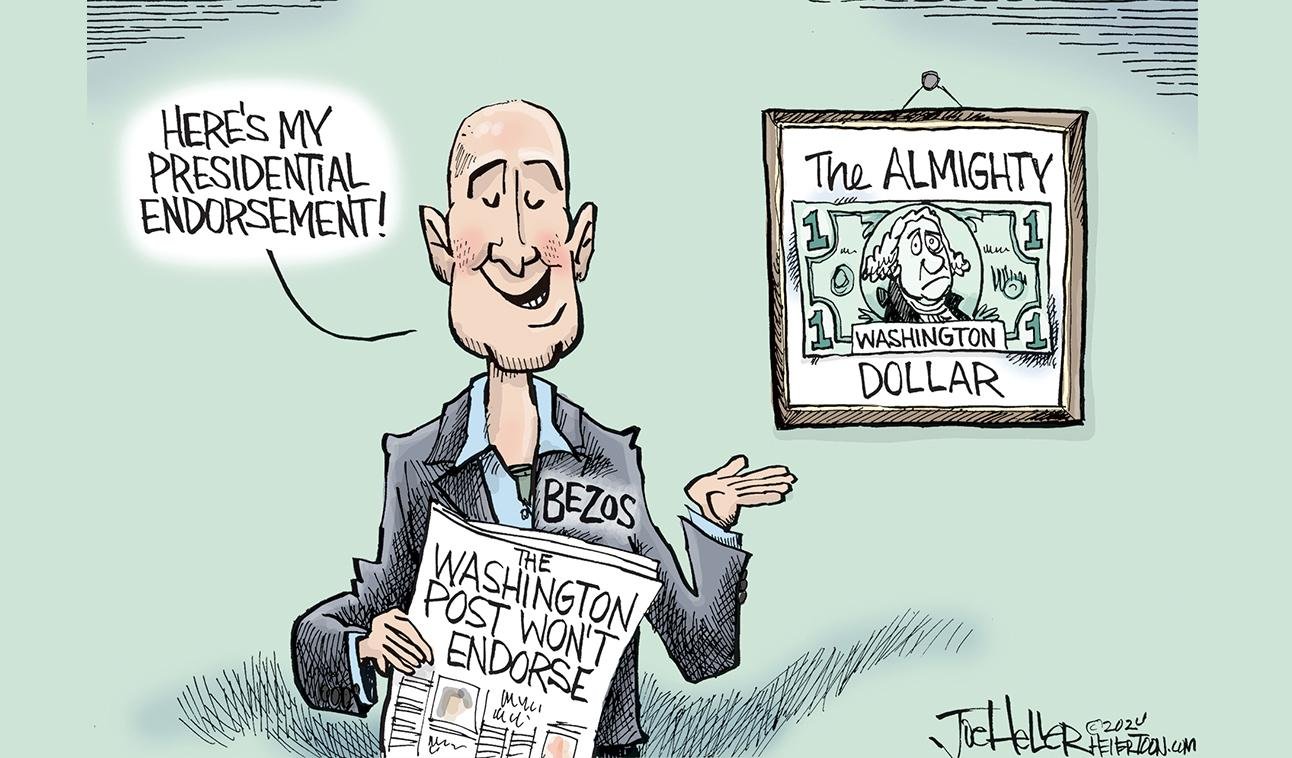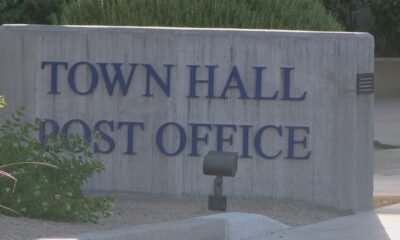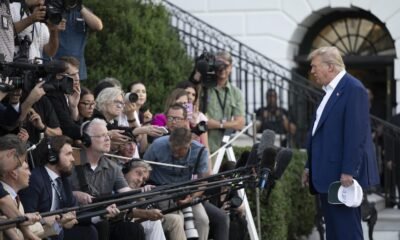Business
Hellertoon: Bezos Breaks the Mold with Unconventional Washington Post Presidential Endorsement

Leaders from prominent national journalism ethics organizations, including the Tucson Sentinel’s newsroom head, have publicly criticized the owners of the Washington Post and LA Times for barring their editorial boards from issuing presidential endorsements just days before the election. This intervention raises serious concerns about editorial independence, a cornerstone of ethical journalism.
The Society of Professional Journalists (SPJ) issued a statement addressing these concerns. They condemned the owners, particularly Patrick Soon-Shiong of the L.A. Times and Jeff Bezos of the Washington Post, for allegedly obstructing the endorsement process, which has led to significant resignations and tensions within both newsrooms.
Fred Brown, a frequent chair of the SPJ Ethics Committee, remarked, “When there is an obvious difference between the candidates, it’s ridiculous and craven not to take a side when your tradition is to endorse.” This sentiment echoes among many journalists who feel the move undermines the integrity of their reporting.
Lynn Walsh, a former SPJ National president, cautioned that this situation could lead to increased publisher control over editorial decisions in the future. “If ownership begins dictating what stories can or can’t be published, it sets a precedent for compromising journalistic independence,” she noted. Andrew Seaman, who chaired the SPJ ethics committee, agreed, pointing out the discomfort of an organization known for endorsements suddenly backing away from that tradition.
Transparency remains a crucial issue. The SPJ Code of Ethics emphasizes accountability and open dialogue with the public, yet both newspapers have provided little insight into their drastic change in policy regarding endorsements. Traditionally, the Washington Post has endorsed candidates in every presidential election since 1976, only to state its intention to revert to a non-endorsement stance. The L.A. Times has offered vague responses as to why it chose not to endorse a candidate this election cycle, leaving many to wonder if such decisions are motivated by business considerations.
There is a divergence of opinion within the SPJ regarding whether news organizations should endorse political candidates at all. Seaman expressed skepticism, asserting that trust in journalism has eroded, making endorsements less relevant today. Walsh echoed this sentiment, highlighting the abundance of opinion content available online, questioning the public’s concern over which candidate a news organization favors.
Brown presented a compelling argument against endorsements, suggesting they could create an impression of biased coverage. He pointed out that not endorsing allows for a perception of neutrality in news reporting, which could mitigate claims of political bias.
Andy Schotz, a former SPJ ethics chair, disagreed with the notion that the endorsement bans constitute a grave threat to journalism or democracy. He noted that many newspapers operate effectively without endorsing candidates, fulfilling their responsibilities to their communities nonetheless. However, he criticized the timing of the owners’ decisions, suggesting that avoiding fallout from potential political repercussions without proper communication to staff and readers was misjudged.
SPJ stands firmly behind the journalists who resigned in protest, as the organization highlights the critical role of exposing unethical practices in journalism. Emily Bloch, SPJ President, voiced concern over the lack of transparency and communication from leadership at the Washington Post and L.A. Times, particularly as election day approaches.


















